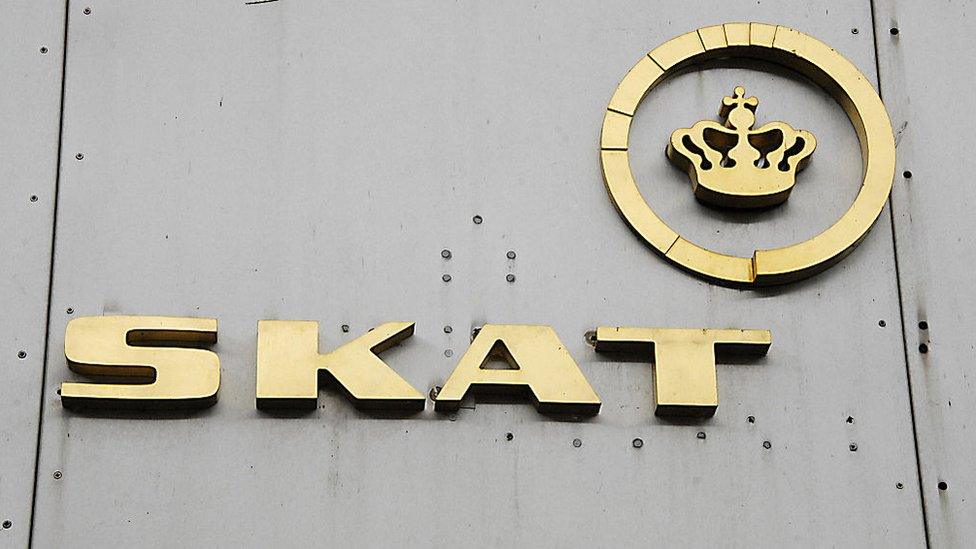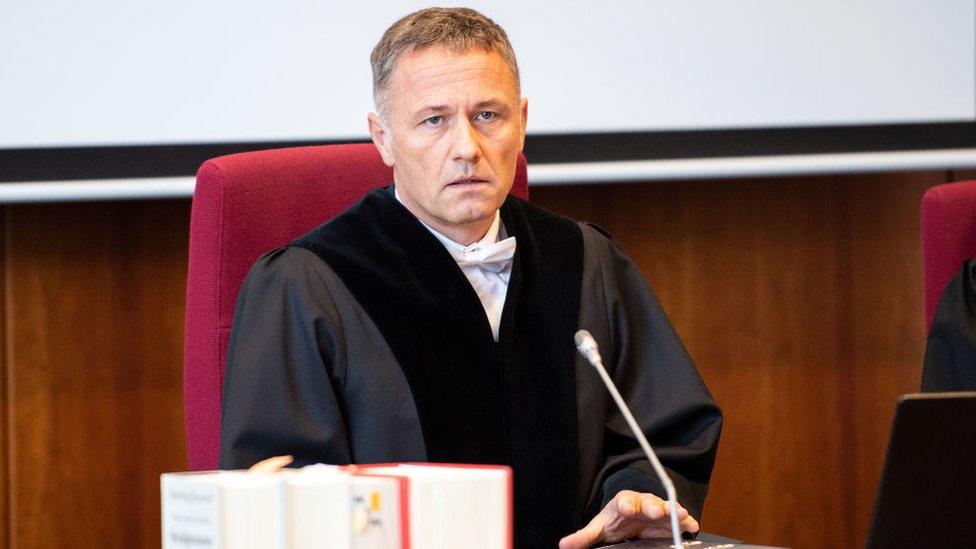Denmark charges six from UK and US with cum-ex fraud
- Published

Denmark says some 12.7bn kroner was paid out by the Skat tax agency to foreign-based companies and individuals
Prosecutors in Denmark have charged three Britons and three Americans with defrauding the Danish treasury of more than 1.1bn kroner ($175m; £130m; €150m) through a German bank.
Two British citizens have already been charged as part of a "cum-ex" trading fraud that swindled the treasury of a total of 12.7bn Danish kroner.
Prosecutors believe the six charged are "the central principals" in the fraud, external.
If found guilty, they could face 12 years in jail.
How the scam worked
Denmark's Serious Economic and International Crime (SEIC) fraud squad said that for more than a year, between 2014 and 2015, hundreds of fake share trades were carried out via the Mainz-based North Channel Bank in Germany.
The aim was to defraud the Danish treasury of 1.1bn kroner through refunds for tax dividends. The bank made a substantial sum in fees and was eventually fined in 2019.

German judge Roland Zickler said last year there would be more trials
Denmark's was just one of a number of European treasuries caught up in the so-called "cum-ex" scandal, in which tax refunds on share sales were claimed by both parties on tax that had only been paid once.
In total, 12.7bn kroner was paid out to foreign-based people or companies, exploiting a loophole that allows foreigners to avoid the tax on dividends that Danes have to pay.
Two other Britons were charged in January for their alleged role in the Danish fraud. Among them is hedge-fund investor Sanjay Shah, who is reportedly in Dubai and denies any wrongdoing. He is also being prosecuted by German authorities.
Two British bankers were given suspended sentences by a German court last year for what the judge called a "collective case of thievery from state coffers". The cum-ex scam is estimated to have cost Germany's treasury €5bn.
Denmark has worked with UK, German and Belgian authorities on the scandal for the past five years.
Fraud prosecutors in Copenhagen said in February they were looking into a variety of networks of people and companies that had sought dividend tax refunds. They froze Sanjay Shah's mansion in London's Hyde Park last year as part of their case.
Prosecutors say they have now charged suspects linked to 10bn kroner out of the total defrauded from the Danish treasury.
The BBC explores the difference between tax avoidance and tax evasion
Related topics
- Published25 September 2019
